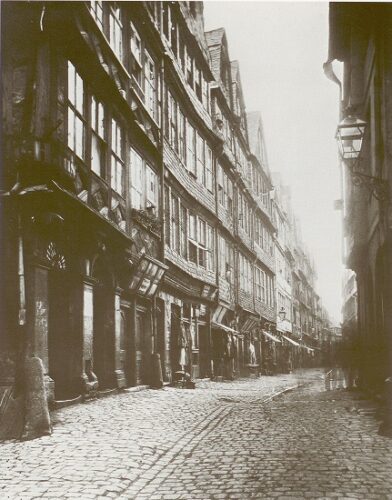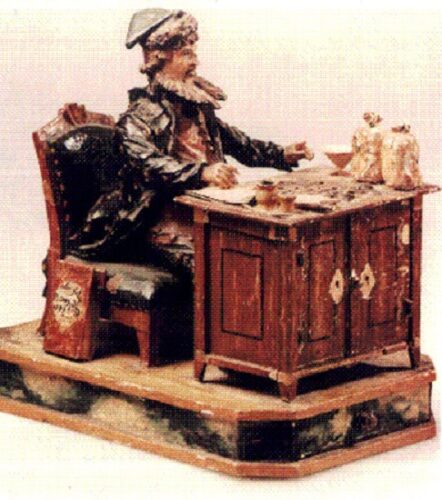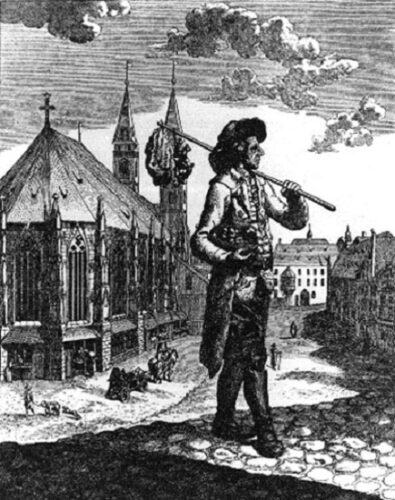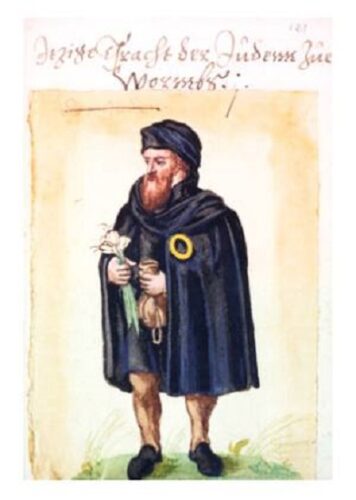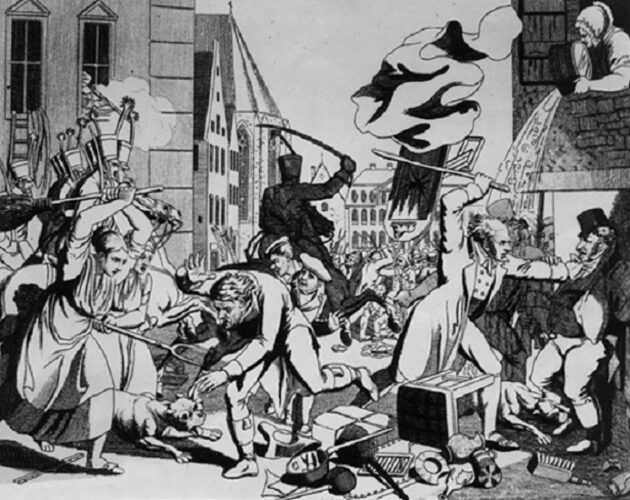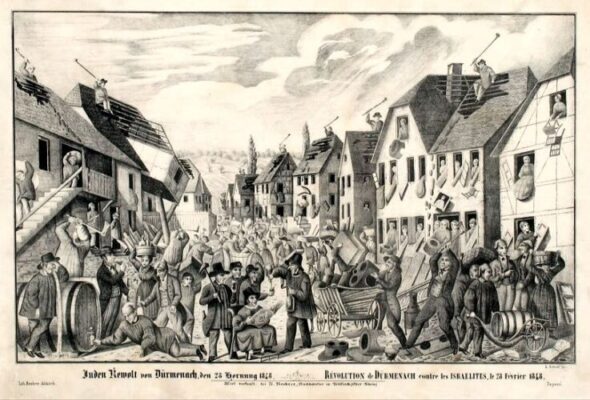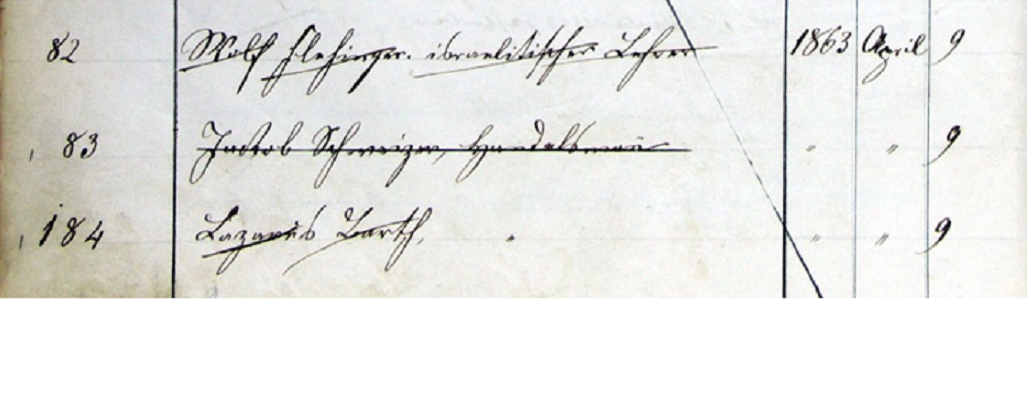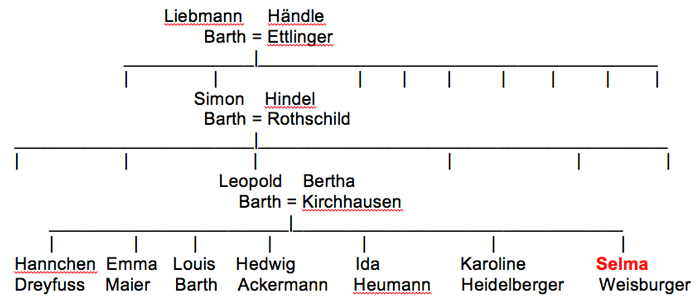
In the US, we associate emancipation with the freeing of African American slaves in 1863.
The road has been rocky – the Ku Klux Klan was founded just a few years after emancipation, the civil rights movement made some progress after about 100 years, but police are still murdering black people today, even after 160 years.
More broadly, emancipation means attaining equality with all other citizens.
In Germany, the official emancipation of Jews came with the unification of all the little states like Baden into the German empire in 1871.
But the road was rocky, with little gains or setbacks happening here or there.
And then only 62 years after the official emancipation of the Jews, the nazis took power.
Emancipation was one of the ideals of the 18th century philosophy of Enlightenment, with philosophers like Voltaire, Goethe and Benjamin Franklin.
Enlightenment ideas led the American colonies to throw off our aristocratic overlords in the American Revolution.
Jews weren’t the only class of people to be emancipated by the end of the 19th century as the Enlightenment spread thru Europe.
Serfs were one notch above slaves.
They were peasants who could not leave the land owned by their lord. If the lord sold the land, the peasants remained in place, and worked for a new lord.
The peasants donated a portion of their labor (the tithe) in exchange for protection.
The feudal tithe was abolished in Baden in 1833.
What did it mean for Jews to be unemancipated in 19th century Germany? In some places at some times:
- Jews were only allowed to live in certain neighborhoods (ghettos)
- Jews were only allowed in certain occupations (moneylenders, physicians, merchants, peddlers)
- Jews could not attend or teach at state schools
- Jews were required to wear certain kinds of dress, Jewish men were required to have beards
- Jews paid higher taxes and higher fees
- Jews had restrictions on marrying, buying land, serving in the armed forces
- Jews were held collectively responsible for crimes by individual Jews
- Jews had to stand on a pigskin when taking a legal oath
- Jews faced discrimination, violent pogroms, and were scapegoated
- commons.wikimedia.orgThe yellow star required during nazi times - 1942
The text says:
Whoever wears this sign is an enemy of our people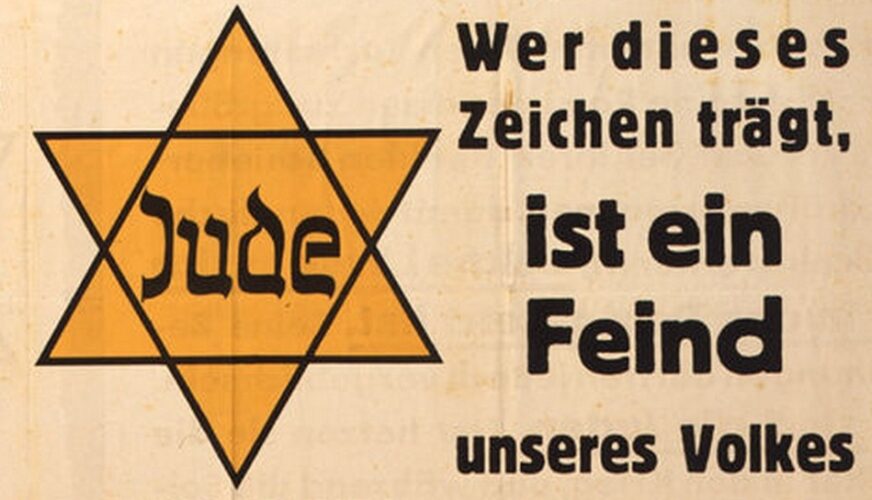
In Baden, as part of the Revolution of 1848, the lower house of parliament “approved the granting of equal political rights to members of all denominations.” {Schönfeld}
In Flehingen the issue came to a head over wood harvesting rights.
The right to harvest wood in the town forest was restricted to citizens. Christians falsely beleived that if Jews became citizens, it would reduce a Christian’s wood allotment.
At the beginning of March, riots broke out in rural areas all over Baden.
“They tore down the ovens of the rabbi … and threatened, if the Jews did not promise that they wanted no more wood, to break everything up for them at night and to throw them out of their houses …” { Rohrbacher as quoted in Schönfeld}
Note the wood stoves with round holes for pots and flues being looted.
In response, my great-great-great grandfather Lippmann Barth and his son my great-great grandfather Simon Barth and other prominent protected Jews, signed a declaration:
of our own free will that
we renounce any citizen’s benefit from the community forest and
… hope that we will receive every protection to make safe our property and that
no citizen who knows Christian love will display an addiction to destruction and persecution, that
we as Jews will also exercise towards both friends and enemies.
{Oberderdingen Community Archive as quoted in Schönfeld}
The strategy worked.
The Jews in Flehingen avoided a pogrom.
In other towns in the Kraich District, doors and windows of Jewish houses were smashed, and furniture was thrown out onto the street.
15 years later in 1863, the first three Jews in Flehingen registered as citizens.
Among them was my great-great grandfather Simon Barth’s brother Lazarus, then aged 40.
74 years later in 1936, the nazis withdrew equal citizenship for Jews.
Jews on the wood rights list from 1935 were crossed out in blue pen.
They include Lazarus’s son Gustav, aged 78, several members of his family. and Berthold Ackermann [Barbara Ackermann’s grandfather] then aged 57.
3,933 total views, 15 views today

